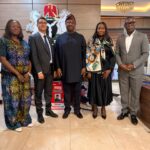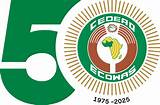Guinea-Bissau on Edge as Fernando Dias Claims First-Round Win, Camp Alleges Plot to “Distort” to Votes.
By Raymond Enoch
Paradigm News International has been closely monitoring the second presidential election taking place in the West African state of Guinea-Bissau, coming on the heels of the recent presidential polls in Côte d’Ivoire. As part of our sustained focus on democratic transitions in the region, we invite you to follow our coverage for real-time updates and fact-checked analysis, as Guinea-Bissau grapples with the challenge of deepening its democracy and pursuing social change within the wider framework of ECOWAS member states’ commitment to constitutional order and credible elections.
Guinea-Bissau’s presidential race has entered a tense and uncertain phase after independent candidate Fernando Dias da Costa claimed outright victory in Sunday’s election while his campaign directorate has accused the ruling authorities of attempting to manipulate the tabulation of results.
Preliminary tallies circulating on local platforms such as Bissau On-line indicate that Dias da Costa is leading incumbent President Umaro Sissoco Embaló, with more than half of polling stations counted both inside the country and in the diaspora. The early figures suggest the challenger has built a significant advantage, stirring public debate over a possible change at the helm of the West African nation.
Buoyed by those trends, Dias da Costa — an independent backed by the Party for Social Renewal (PRS) and the Terra Ranka coalition of opposition leader Domingos Simões Pereira — has publicly declared that he has already crossed the 50-percent threshold needed to avoid a run-off. Addressing supporters in Bissau, he said the pattern of results compiled by his campaign teams nationwide “does not allow for a second round,” claiming leads in almost all regions except Gabú in the east. He praised what he called a massive mobilisation of youth and women, describing it as a clear signal of the population’s desire for political change.
But the celebrations from his supporters are tempered by growing unease over the integrity of the final count. In a sharply worded statement issued on Monday, the Campaign Directorate of Fernando Dias da Costa alleged an “ongoing attempt by the regime to commit fraud with the electoral results.” The statement condemns an order from the Public Prosecutor’s Office removing its judicial and electoral representatives from the Regional Electoral Commissions (CREs), who had been assigned to oversee the tabulation of district results.
According to the Campaign Directorate, the sudden withdrawal of these officials, “without any plausible justification,” undermines transparency and “contrasts with the public interest in ensuring greater rigor in the counting of votes.” The Directorate further claims that President Embaló personally ordered the requisition of all vote-counting minutes in the Bafatá region — characterising this as “gross interference in the electoral process.”
The Dias camp also denounced what it called the arbitrary detention of Victor Mandinga, its regional coordinator in Bafatá, arguing that the move was intended to prevent close monitoring of Sunday’s voting and counting operations. It urged the Public Prosecutor’s Office to “scrupulously comply with the law,” citing Article 83 of the Electoral Law, which assigns the institution a central role in supervising the results-tabulation process as guardian of legality.
Against this backdrop, the campaign has instructed its representatives in all CREs to “redouble their vigilance” to thwart any manoeuvres that could “jeopardise the popular vote expressed at the polls.”
For its part, the National Electoral Commission (CNE) has described election day as generally calm and orderly despite logistical challenges, and is pressing ahead with the national tally. Official provisional results are expected once collation is completed, a process being watched closely both by citizens and international observers.
Until the CNE speaks, Guinea-Bissau remains on edge: one side proclaiming a first-round victory and demanding strict respect for the popular will, the other still officially silent, as the battle over numbers and narratives intensifies behind the closed doors of the tabulation centres.








